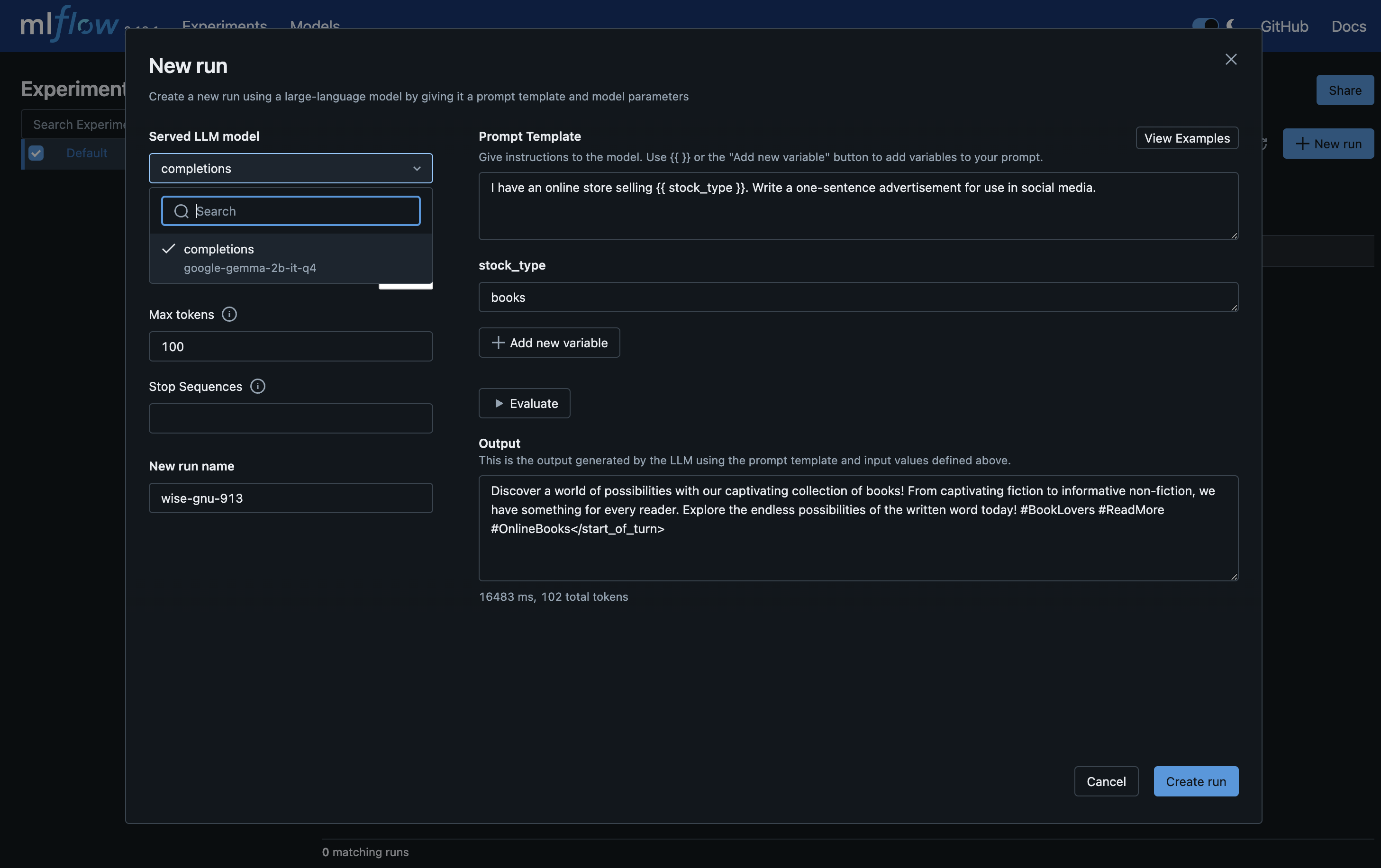MLflow
MLflow is an open-source tool for managing the machine learning lifecycle. It has various features for LLMs (link) and integration with OpenAI. We can apply these MLflow features to the LLM endpoints provided by LLMariner.
For example, you can deploy a MLflow Deployments Server for LLMs and use Prompt Engineering UI.
Deploying MLflow Tracking Server
Bitmani provides a Helm chart for MLflow.
helm upgrade \
--install \
--create-namespace \
-n mlflow \
mlflow oci://registry-1.docker.io/bitnamicharts/mlflow \
-f values.yaml
An example values.yaml is following:
tracking:
extraEnvVars:
- name: MLFLOW_DEPLOYMENTS_TARGET
value: http://deployment-server:7000
We set MLFLOW_DEPLOYMENTS_TARGET to the address of a MLflow Deployments Server that we will deploy in the next section.
Once deployed, you can set up port-forwarding and access http://localhost:9000.
kubectl port-forward -n mlflow service/mlflow-tracking 9000:80
The login credentials are obtained by the following commands:
# User
kubectl get secret --namespace mlflow mlflow-tracking -o jsonpath="{ .data.admin-user }" | base64 -d
# Password
kubectl get secret --namespace mlflow mlflow-tracking -o jsonpath="{.data.admin-password }" | base64 -d
Deploying MLflow Deployments Server for LLMs
We have an example K8s YAML for deploying a MLflow deployments server here.
You can save it locally, up openai_api_base in the ConfigMap definition based on your ingress controller address, and then run:
kubectl create secret generic -n mlflow llmariner-api-key \
--from-literal=secret=<Your API key>
kubectl apply -n mlflow -f deployment-server.yaml
You can then access the MLflow Tracking Server, click "New run", and choose "using Prompt Engineering".

Other Features
Please visit MLflow page for more information for other LLM related features provided by MLflow.